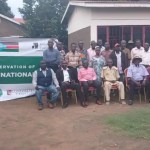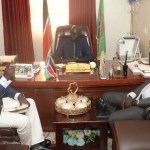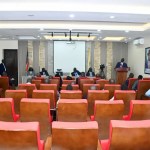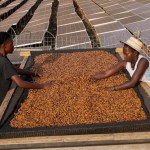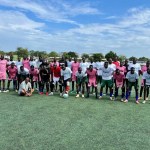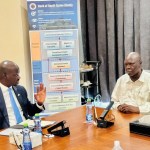(Rumbek) – A new €36 million (approximately 42.5 million US dollars) agriculture initiative has been launched in South Sudan, aiming to support climate resilient farming across four states. The Green and Resilience Agriculture and Climate Economy (GRACE) project will target more than 22,000 smallholder farmers and reach nearly 142,000 beneficiaries over the next four years.
The GRACE project is being implemented in Lakes State (specifically Cueibet and Wulu counties), Central Equatoria (Terekeka and Juba), Western Equatoria (Nzara), and Northern Bahr el Ghazal (Aweil Centre, Aweil South, and Aweil North). It will involve 360 producer groups and 23 cooperatives, with a strong focus on community participation and coordination at all administrative levels, from state down to boma.
Led by the GIZ/SNV consortium, the initiative aims to strengthen food and nutrition security, improve resilience to climate shocks, and create jobs. The overall goal is to build a green and sustainable economy in South Sudan that can withstand future challenges.
Poth Majak Daljang, South Sudan’s Minister of Agriculture, Forestry, and Environment, stressed the importance of investing in efficient and practical farming techniques. He said each payam involved in the project must have demonstration plots where farmers can receive hands-on training. He also noted that the quality of farming is more important than the size of land cultivated, saying, “Cultivating just two feddans with skill can outperform seven or eight feddans without expertise.”
Daljang added that security improvements in Lakes State make it suitable for development projects. He said areas like Rumbek North, which were once seen as insecure or inaccessible, are now open to interventions that benefit local communities.
However, he highlighted water access as a major challenge, especially for vegetable production. While rain-fed agriculture can be supported, he noted that more advanced systems—such as water yards—are needed instead of basic hand pumps to ensure higher yields.
David Lugeron, Head of the World Food Programme (WFP) in South Sudan, praised the potential of Lakes State’s fertile land and rainfall for supporting agriculture not only locally but nationwide. He described the GRACE project as well-timed and stressed the importance of joint efforts by organisations such as WFP, the UN Food and Agriculture Organisation (FAO), and local authorities.
Hannington Sebaduka, FAO’s Head of Field Office in Rumbek, described the project as a “beacon of hope” for South Sudan’s agriculture. He welcomed the project’s four-year duration, pointing out that most past initiatives were only short-term, lasting six months or a year. He said this longer timeline will allow for more meaningful progress.
Sebaduka explained that the project’s design includes developing strong farmer groups and cooperatives that can improve market access, value addition, and financing opportunities. He said the project aligns with FAO’s long-term goals of building sustainable food systems and agribusiness in South Sudan.
Wani Julius, resilience programme coordinator for Norwegian People’s Aid (NPA), also expressed support for the GRACE project. He compared it favourably to shorter initiatives, noting that it allows time for real change and has already been applied successfully in Bor with support from the World Bank. He highlighted the importance of involving farmers and government at all levels to ensure ownership and success.
Samuel Aberic Makur, Deputy Chairperson of the Relief and Rehabilitation Commission (RRC) in Lakes State, said the GRACE project represents an improvement over previous seasonal programmes. He confirmed the RRC’s commitment to working alongside the Ministry of Agriculture to ensure the project’s success and said the selected beneficiaries are well positioned to benefit from it.










